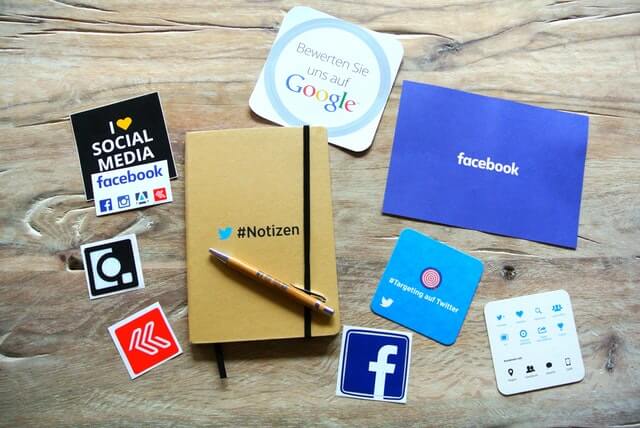It’s 2021 and social media is here to stay! That’s why it’s so important for you to incorporate social media into your marketing plan for your small business. As a valuable means of communication and spreading awareness about your business, there are a variety of ways that you can leverage social media to attract new customers and maintain your online presence. There are numerous social media platforms that can suit your ideal audience types. And with a strategic plan in place to advance your social media initiatives and goals, you’ll be able to yield measurable results.
Engagement from your followers will be one of the many key indicators of how effective your efforts are. Whether someone has positive or negative feedback about your company,, this information will be very important. Furthermore, the way in which you handle this type of feedback on a public platform will have an impact on your brand’s reputation. We’ve all heard plenty of horror stories about big brands not responding to valid customer feedback, or completely missing the mark with certain content. Now, let’s talk a little bit more about why social media is going to be one of your most important tools when it comes to your overall business strategy.
Building Brand Awareness in the Community
New data tells us that as of March 2021, there are approximately 4.2 billion people using social media. On average, these users dedicate at least two and half hours of their day browsing various social media channels. Keeping those statistics in mind, you can drastically increase your chances of reaching your target audience as long as you’re utilizing the right tactics to reach said audience. In fact, the way many people come across your brand may just be through social media.
Building brand awareness will be one of the main components to your overall social media strategy. This can be accomplished through a variety of ways. However, for small businesses in particular, it’s important to be community-oriented. Building an established presence among surrounding communities is possible by partnering with other local businesses, launching campaigns for certain initiatives to create awareness regarding a certain topic, while simultaneously creating awareness for your brand will help cultivate a larger following to whom you can promote your brand.
Expertise and Thought Leadership
Sharing your expertise on social media will establish credibility among your target audience. Spreading information about topics in which prospective customers might be interested empowers you as an expert in your field. The more your audience sees you on their social media timelines, the more likely you are to pop up in their minds when they’re looking for a specific product or service that you can provide. Ultimately, your interactions and feedback from your prospective buyers will help you learn more about your audience overall. Over time, you’ll have a better understanding of their behaviors and preferences, which will help you tailor your content accordingly.
Get One Step Ahead of the Competition
Larger corporations and businesses are inevitably going to have more resources at their fingertips when it comes to leveraging more traditional marketing methods. However, social media marketing provides a much more even playing field. As a matter of fact, one advantage that smaller businesses have over large corporations is that personal touch. This authenticity will be what inspires brand loyalty within your customer base.
Of course, big corporations aren’t going to be your main competitor if you own a small business. Other small businesses are trying to accomplish the same thing that you are: building brand awareness and loyalty. But this is not a reason to keep going through the motions when it comes to your content – in fact, many small businesses don’t have a solid social media strategy in place. This is why paying close attention to what your competitors are doing is so important. Anything that they’re not doing is exactly what you need to be doing in order to grab your share of the market.
Reaching Your Goals
Now that we’ve discussed the “why,” it’s important to understand the “how.” How do you go about setting up your strategy? You’ll want to ask yourself, “How do I know how effective my efforts are?” There are going to be several factors that comprise your strategy, as well as key indicators of your campaign’s performance. To start, try to come up with small, measurable goals that will contribute to your overall strategy. These are known as your “Objectives.” If you want a crash course in Social Media Strategy 101, refer to the “SMART Goal Method”. Your objectives must be:
Specific
Measureable
Achievable
Relevant
Timely
It’s important to base your objectives on metrics that are relevant to your business and overall strategy. For example, you should be tracking how many followers you gain each month, in addition to likes, comments, shares, and account mentions. If your overall goal is to increase website conversions, include a link to your website in your posts and track social traffic in your website’s analytics. You should be tracking those conversions, as well as click rates. Alternatively, if your goal is to track brand awareness, you should be tracking growth (number of followers), as well as engagement (likes, shares, comments). These metrics are useful, as they will give you an idea of how well your campaign is performing, your brand health, and your strategy’s overall impact.
Of course, one of the most important factors you’ll need to track is going to be your engagement, no matter what your overall goal is. This term is all encompassing with regard to all of the different metrics that indicate how engaged your audience is with your content. Likes, comments, growth, and shares are all going to be very important metrics that fall under the engagement category. In a nutshell, engagement metrics are going to indicate how effective your social media efforts are.
Benchmarking
Benchmarking is a common practice for all types of businesses. Essentially, benchmarking means setting a standard metric and comparing your performance against that standard. Many businesses will set benchmarks for accountability purposes, while giving employees a goal towards which they need to work if they haven’t met that particular metric. In terms of social media marketing, a very common practice is to set your company’s metrics to reflect those of your competitors. Otherwise known as “competitive benchmarking,” this will provide you with a realistic goal to put in place for your metrics, and you’ll be able to assess your campaign’s effectiveness much more easily when you have additional context behind these metrics.
When it comes to choosing competitors to analyze, bear in mind that not all metrics are made the same. For example, if you’re a small, independent retailer, you won’t want to set your benchmarks to compare with those of a company like Walmart. Your competitors are going to be on the same level as you in terms of your social presence, following, and target audience. Metrics such as interactions, how often your competitors post, as well as hashtags or keywords are all very important KPI’s to evaluate when setting your benchmarks.
We’ve all heard the saying “Keep your friends close, but keep your enemies closer.” While the term “enemy” is certainly harsh, this saying is particularly true when it comes to gauging your own social media strategy’s effectiveness. Not only will you be able to set realistic and attainable goals, but you’ll also be able to gain some valuable insights into social trends in your industry.
Implementation
Implementing and maintaining your social media strategy doesn’t have to be as time-consuming or overwhelming as you may think. There are plenty of different tools to help you create a post schedule, and even help automate your post schedule so there’s little to no time commitment. Maintaining consistency across the board will also help you measure your data more accurately, and in turn, you’ll be able to pivot your efforts accordingly.
Setting an automated post schedule will help immensely with timeliness and consistency across your posts, and will increase your chances for engagement among your followers. It goes without saying that small businesses will have an easier time connecting with their followers as there will be less of an influx in terms of engagement, so you should be able to respond to feedback promptly.
Influencers
Building your small business brand’s credibility is hard to do unless you have someone to vouch for you. When you think about it, influencer marketing has been around for years with celebrities endorsing products and services through TV commercials, radio ads, billboard ads, and the like. The difference today, however, is that much of this is now accomplished through the use of social media.
Influencer marketing is clearly being utilized more than ever. As a type of marketing that leverages social proof to your brand, influencer marketing is successful in establishing a line of trust between your audience and your brand. These individuals are typically well-known and highly regarded in your niche, with thousands of dedicated followers that boost their overall social presence.
Instagram is undoubtedly the best platform to leverage influencers, but that doesn’t mean other platforms aren’t just as well-suited to spread the word about your brand. However, as a rule, it’s best to stick with one platform when you start out. Ideally, you’re going to have some form of presence on your chosen platform. In terms of compensation for the influencer, this will be directly proportional to their following. Is this individual a “micro-influencer” with less than two thousand followers? Or are you looking to vastly increase your reach, and perhaps leverage someone with upwards of 20 thousand followers? Regardless, you’re going to want to do your research and ensure you’re able to identify how much of a contribution your influencer is making to your overall social media strategy.








